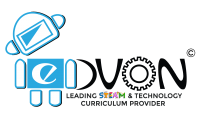e-Tutoring: Bridging the Gap in Education through Online Learning Platforms
Introduction:
In the dynamic landscape of education, the advent of e-tutoring through online learning platforms has emerged as a transformative force, bridging gaps and fostering inclusive learning environments. In this exploration, we delve into the profound impact of e-tutoring, showcasing its role in shaping the future of education while subtly acknowledging the evolving landscape of education and training jobs.
Unveiling the World of e-Tutoring:
In an era where digital connectivity defines our daily lives, e-tutoring stands as a beacon of change in the realm of education. Online learning platforms connect students with tutors globally, transcending geographical constraints. This not only facilitates personalized learning experiences but also opens up a world of opportunities for those seeking knowledge and expertise.
Personalized Learning: Tailoring Education to Individual Needs
A Shift from One-Size-Fits-All Education
Traditional classrooms often struggle with the challenge of catering to diverse learning needs. E-tutoring, however, allows for a more personalized approach. Tutors can adapt teaching styles and materials to suit the unique requirements of each student, fostering a deeper understanding of the subject matter. This tailored approach is reshaping education and jobs placing a premium on adaptability and student-centric methodologies.
Empowering Students Through Customized Curriculum
In the realm of e-tutoring, the emphasis is on empowering students to explore topics that align with their interests and career aspirations. Tutors become facilitators of knowledge, guiding students on personalized learning journeys.
Accessibility: Breaking Down Geographic Barriers
Global Reach for Students and Tutors Alike
E-tutoring transcends borders, providing access to quality education for students around the globe. Similarly, it opens up opportunities for tutors to connect with a diverse range of learners. This globalization of education is redefining the dynamics of education and training jobs, emphasizing the need for cross-cultural understanding and adaptability.
Bridging Educational Disparities
In regions with limited access to quality education, e-tutoring becomes a powerful tool for bridging educational disparities. Students in remote areas can now connect with experienced tutors, receiving guidance that was once beyond their geographical reach. This democratization of education is a testament to the transformative potential of online learning platforms.
Flexibility: Adapting to the Rhythms of Modern Life
Balancing Education and Other Commitments
The traditional model of education often clashes with the demands of modern life. E-tutoring, however, thrives on flexibility. Students can schedule sessions at their convenience, allowing them to balance education with work, family, or other commitments. This adaptability is shaping the expectations within the domain of education and training jobs, encouraging a more flexible and student-centric approach.
Unlocking Opportunities for Lifelong Learning
The flexibility of e-tutoring extends beyond traditional academic pursuits. Lifelong learners, seeking to acquire new skills or delve into new subjects, find a welcoming space in online learning platforms. This aligns with the evolving nature of education and learning, where a commitment to continuous learning is increasingly valued.
Technology as the Enabler: Enhancing the Learning Experience
Interactive Learning Environments
E-tutoring leverages technology to create interactive and engaging learning environments. Video conferencing, collaborative online tools, and multimedia resources transform learning into a dynamic and participatory experience. The integration of technology is not just a supplementary aspect but a fundamental shift in the paradigm of learning and job training emphasizing the role of technology in modern pedagogy.
Real-Time Feedback for Continuous Improvement
The immediacy of online interactions allows for real-time feedback, a feature that greatly benefits both students and tutors. Adjustments can be made on the fly, ensuring that learning remains effective and tailored to individual needs.
Challenges and Opportunities in e-Tutoring:
Addressing Technological Disparities
While e-tutoring holds immense promise, it also brings to light the existing technological disparities. Not all students have equal access to devices and high-speed internet, posing challenges to the widespread adoption of online learning. Addressing these disparities becomes crucial both in the context of education and job opportunities.
The Need for Professional Development
Tutors entering the realm of e-tutoring must navigate the nuances of online pedagogy. Professional development opportunities become pivotal for tutors to enhance their digital teaching skills. This aligns with the evolving expectations within learning and training jobs, emphasizing the importance of ongoing professional growth.
Conclusion: A Glimpse into the Future
In conclusion, e-tutoring is not just a technological innovation; it’s a catalyst for a profound shift in the way we approach education. As online learning platforms continue to evolve, they bring forth opportunities to redefine the expectations within education and jobs. The emphasis on personalization, accessibility, flexibility, and technology integration is not just transforming the learning experience; it’s shaping the very essence of education in the 21st century.
As we navigate this transformative journey, it’s essential to recognize the symbiotic relationship between e-tutoring and the field of education and jobs. The future promises an education landscape that is not bound by geographical constraints but thrives on inclusivity, adaptability, and a shared commitment to the pursuit of knowledge.
In this age of digital connectivity, e-tutoring stands as a testament to the resilience of education, adapting and evolving to meet the needs of a dynamic and interconnected world.






